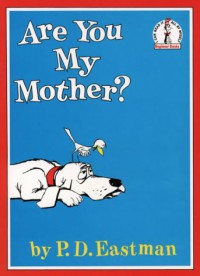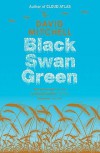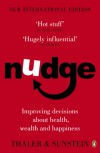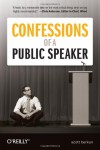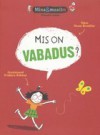Dusty Volumes
maggie and milly and molly and may went down to the beach(to play one day)
Why Smart People Hurt: A Guide for the Bright, the Sensitive, and the Creative

This is a difficult book to rate or review, not least because I generally have a hate-hate relationship with "self-help" books, and this one pushes too many of my wrong buttons (if it is indeed a book, and not purely a giant informercial for the author's "Natural Psychology").
But ...
It also provided a enough "aha" moments, and insight into some things that have been bugging me for a while, for me to give it a high rating, regardless of its many, many flaws.
The constant refrain of the book is that smart people are really, really good at thinking themselves into all sorts of traps, and really, really bad at being smart about the challenges of being smart. Maisel sets out fifteen key areas in which this often applies, and suggests a variety of techniques for addressing them.
I'm not entirely convinced by many of the proposed solutions (and got increasingly more irritated by the constant framing of them in terms of what "an adherent of natural psychology" would do), but simply providing a framework to notice and name a lot of bad thinking traps — many of which I'm well aware of falling into regularly, but have never really been able to identify with this level of clarity — is (hopefully) of sufficiently high value on its own.
 Works best if read very slowly. Preferably with a week or so between each column. And ideally whilst the topic being talked about is still fresh. Not so good years later in book form.
Works best if read very slowly. Preferably with a week or so between each column. And ideally whilst the topic being talked about is still fresh. Not so good years later in book form.
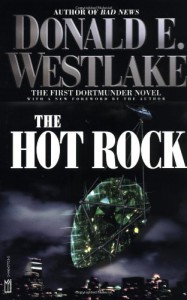 This is somewhere between Bernie Rhodenbarr and Evan Michael Tanner, with a likable rogue getting into ever increasingly ludicrous situations. This isn't as well drawn as either of those, but there's enough promise (and enough laugh out loud moments) for me to check out more of the series.
This is somewhere between Bernie Rhodenbarr and Evan Michael Tanner, with a likable rogue getting into ever increasingly ludicrous situations. This isn't as well drawn as either of those, but there's enough promise (and enough laugh out loud moments) for me to check out more of the series.
Digital State: How the Internet is Changing Everything
 I need to get better at abandoning books like this more quickly. With a single author I can usually tell quite quickly that there's little point in continuing, but with collections like this I keep thinking that there must be someone coming up Real Soon Now with some insight, or something interesting to say.
I need to get better at abandoning books like this more quickly. With a single author I can usually tell quite quickly that there's little point in continuing, but with collections like this I keep thinking that there must be someone coming up Real Soon Now with some insight, or something interesting to say.Part of the problem, undoubtedly, is that I'm not the target audience. The book is very British attempt[1] not so much to join in the conversation about the impact of technology, but to re-rehearse it to the sort of people for whom the top item in a list of Five Uncomfortable Human Truths needs to be “Life is more important than brands”.
I was particularly disappointed by the chapters that stray out of the advertising/marketing sphere into areas where I have more first-hand knowledge. Christian Johnsen's “Stories into Action — How storytelling and digital platforms will make our world a better place” takes as its premise that great storytelling creates energy for change, and the internet provides a much needed platform for converting that into action. But the bulk of the chapter is given over to key examples (Obama's 2008 campaign, [his own] ThisPlace09, the Egypt Revolution of 2011, and Kony 2012), which at best fall short, and in some cases are primarily cautionary tales about how not to do things. The author acknowledges this at the end by claiming he's really only trying to lay out the beginnings of a framework for how these tools can be used — but in the process he ignores the large numbers of people who have already been doing so at a much deeper level.
This reflects my complaint generally about the whole book: there's very little in it that I haven't already encountered much better elsewhere.
--
[1] and I mean that in the worst possible way
Outcasts!: The Lands That FIFA Forgot
 I love the idea of this book — looking at issues of nationality and statehood through the lens of football:
I love the idea of this book — looking at issues of nationality and statehood through the lens of football:“In an era when politics means less and less, particularly in more industrialized countries, when fewer and fewer people turn out to vote, sport crystallises the notion of a nation perhaps more than anything else. ...
As the world's most popular team sport, football keeps alive the idea of a national identity undefined by political borders better than most. The notion of Englishness and Scottishness, for example, has been kept alive by sport as much as anything else since the Act of the Union in 1707. In places where identity is slowly starting to mean less and less, in an age of globalization where satellite TV is watering down local sports in favour of global brands, some peoples are trying to keep alive an identity that is being lost, through football.”
The author tracks the progress — usually slow, frustrating, and contentious — towards international recognition (whether at the highest levels, or simply to get an occasional match) by teams from the Channel Islands, Greenland, the Falklands, the Isle of Man, Gibraltar, Northern Cyprus, Occitània, Monaco, Kosova, Zanzibar, Tibet, North Mariana, the Vatican, and Sápmi.
Unfortunately the book is in dire need of a good editor. The book keeps cutting between general history lessons of the various nations; the history of football within them; the quest for international recognition of their football associations; and (surprisingly detailed) reports on some of the matches they actually get to play (e.g. at the Island Games). Each of these can be quite interesting, but they don't cohere well, and the book ends up incredibly disjointed, failing, as a result, to tell any compelling story.
The Idler's Glossary
 The introduction (which takes up approximately a quarter of the book) makes for a fairly good 6000 word essay on the topic, going significantly further than (and taking issue with) Bertrand Russell's [b:In Praise of Idleness|135742|In Praise of Idleness And Other Essays|Bertrand Russell|http://d202m5krfqbpi5.cloudfront.net/books/1172071900s/135742.jpg|1314555] by insisting on a distinction between slacking (which is simply the work of avoiding work) and idling (a primary state by itself, not defined solely as the negation of work). However, the main body of the book (the glossary) is rather dull and tedious. Stick instead to [b:How to Be Idle|623922|How to Be Idle|Tom Hodgkinson|http://d202m5krfqbpi5.cloudfront.net/books/1349057095s/623922.jpg|1768914] (by Tom Hodgkinson, to whom this book is dedicated.)
The introduction (which takes up approximately a quarter of the book) makes for a fairly good 6000 word essay on the topic, going significantly further than (and taking issue with) Bertrand Russell's [b:In Praise of Idleness|135742|In Praise of Idleness And Other Essays|Bertrand Russell|http://d202m5krfqbpi5.cloudfront.net/books/1172071900s/135742.jpg|1314555] by insisting on a distinction between slacking (which is simply the work of avoiding work) and idling (a primary state by itself, not defined solely as the negation of work). However, the main body of the book (the glossary) is rather dull and tedious. Stick instead to [b:How to Be Idle|623922|How to Be Idle|Tom Hodgkinson|http://d202m5krfqbpi5.cloudfront.net/books/1349057095s/623922.jpg|1768914] (by Tom Hodgkinson, to whom this book is dedicated.) Started well, but quickly descended into farce (and not the good kind). By two-thirds through I'd lost all interest.
Started well, but quickly descended into farce (and not the good kind). By two-thirds through I'd lost all interest.
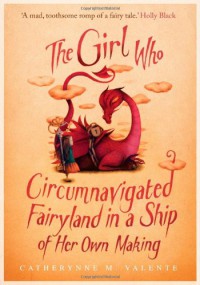 I love the concept of this book (not so much the anti-Narnia of Pullman as a 90º twist on it); I love the beautiful writing (with words that “did not pretend to be simple, but put on their full armor and rode out with colors flying.”); I love how well it achieves hiding the story for adults inside the story for children; I love how complex the main character is compared to her equivalents in most similar books (and how she's a rejection of the Chosen One trope); I love so many of the delightful concepts sprinkled throughout (though I feel sorry for the translators who'll need to handle a character who knows nothing about anything outside the A–L volume of the encyclopedia). But despite all this, the book was a struggle, largely because the story itself just didn't grip me.
I love the concept of this book (not so much the anti-Narnia of Pullman as a 90º twist on it); I love the beautiful writing (with words that “did not pretend to be simple, but put on their full armor and rode out with colors flying.”); I love how well it achieves hiding the story for adults inside the story for children; I love how complex the main character is compared to her equivalents in most similar books (and how she's a rejection of the Chosen One trope); I love so many of the delightful concepts sprinkled throughout (though I feel sorry for the translators who'll need to handle a character who knows nothing about anything outside the A–L volume of the encyclopedia). But despite all this, the book was a struggle, largely because the story itself just didn't grip me. 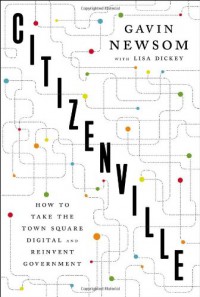 The book opens with Newsom, then mayor of San Francisco, meeting with Toomas Hendrik Ilves, president of Estonia. Newsom is attempting to impress Ilves with details of some of the recent technology initiatives they've instituted, and is surprised to discover that Estonia has already had these things (and many more besides) for a long time. “Americans tend to think of San Francisco as Tomorrowland, on the cutting edge of technology in government, but in fact, we were years behind”, he realises.
The book opens with Newsom, then mayor of San Francisco, meeting with Toomas Hendrik Ilves, president of Estonia. Newsom is attempting to impress Ilves with details of some of the recent technology initiatives they've instituted, and is surprised to discover that Estonia has already had these things (and many more besides) for a long time. “Americans tend to think of San Francisco as Tomorrowland, on the cutting edge of technology in government, but in fact, we were years behind”, he realises. What makes this book so frustrating is that Newsom seems to have completely failed to understand the value of this lesson. Rather than using it as a prompt to explore how other cities and countries around the world have already discovered creative and innovative approaches to many of their issues, so as to copy or even improve on them, he remains trapped in his California bubble, preferring instead of seek advice from the usual roll-call of tech pundits as to how best to model his city (or state, or country) on Farmville instead. Other than a couple of token nods to internationally led approaches in internet voting and participatory budgeting, Newsom's entire field of vision seems restricted to Silicon Valley startups, "Code for America"-style hackathons, and a few ideas being tried in a couple of other US cities (the leaders of whom he'd be happy to regularly learn from, as long it's through some sort of MayorBook social network).
Hidden amongst the shallow treatment of most of the key issues surrounding citizen participation (e.g. reducing the privacy debate to Guy Kawasaki's laughable claim that there could be no problem with Facebook knowing every other website you visit unless you're a paedophile), there are some interesting tales of the problems Newsom faced when trying to actually implement some of his ideas in San Francisco — whether from entrenched bureaucracy, a hostile press, or even just their own self-doubt and lack of research (an initial idea to make public transport free to use is abandoned after "realising" that this would simply lead to residents abusing the system as they would no longer value it — an argument that has turned out be entirely untrue in Tallinn.)
Had this been a more reflective book, wrestling more deeply with how to adjust all the superficially neat theories to better cope with exposure to day-to-day political reality, it could have been a very useful view from the inside. But instead these are largely shrugged off with a "Do as I say, not as I do" approach, and that opportunity is lost.
 This is a short, tightly written, largely persuasive essay on why lying (fairly narrowly defined as intentionally misleading someone who expects honest communication from you) is a Bad Thing — including (and specifically dealing with) the classic “Do you happen to have any Jews hiding in your attic?” and “Does this make me look fat?” cases. The key “the obvious isn't always apparent” a-ha moment for me was that when we choose to hide the truth from someone, believing it to be for their benefit, we are explicitly denying them access to reality, in a stunningly arrogant infringement on their freedom.
This is a short, tightly written, largely persuasive essay on why lying (fairly narrowly defined as intentionally misleading someone who expects honest communication from you) is a Bad Thing — including (and specifically dealing with) the classic “Do you happen to have any Jews hiding in your attic?” and “Does this make me look fat?” cases. The key “the obvious isn't always apparent” a-ha moment for me was that when we choose to hide the truth from someone, believing it to be for their benefit, we are explicitly denying them access to reality, in a stunningly arrogant infringement on their freedom. However, I immediately followed this book with [b:Radical Honesty|551511|Radical Honesty How to Transform Your Life by Telling the Truth|Brad Blanton|http://d202m5krfqbpi5.cloudfront.net/books/1348064838s/551511.jpg|538752], and by the time I'd finished even the introduction to that, I had docked one star from my rating here. I'm still undecided whether Blanton's take is great or terrible, but either way it exposed remarkably quickly that Harris' version is actually deceptively shallow.
 This gets a bonus ★ for raising some interesting questions occasionally, but the delivery is terrible. The comparison of Google's rise to power with that of Julius Caesar is an evocative one, though underdeveloped. Similarly, the thesis that by doing nothing (or, too little too late) we allowed car companies and airlines to shape our societies much more for their own benefits than for ours during the 20th Century, and need to be very careful not to let technology companies do likewise in the 21st, is an intriguing one (as in both cases the results aren't necessarily obviously bad for us, just perhaps not as good as they could/should be). But the descriptions of the problem seem slightly off-key, and the proposed solutions are entirely unconvincing.
This gets a bonus ★ for raising some interesting questions occasionally, but the delivery is terrible. The comparison of Google's rise to power with that of Julius Caesar is an evocative one, though underdeveloped. Similarly, the thesis that by doing nothing (or, too little too late) we allowed car companies and airlines to shape our societies much more for their own benefits than for ours during the 20th Century, and need to be very careful not to let technology companies do likewise in the 21st, is an intriguing one (as in both cases the results aren't necessarily obviously bad for us, just perhaps not as good as they could/should be). But the descriptions of the problem seem slightly off-key, and the proposed solutions are entirely unconvincing.
 I expected to hate this, but it was surprisingly good. Yes, it's incredibly shallow, and almost entirely about the author's own experiences, and, yes, the examples are painfully detailed at times ... but somehow it works, and gives a plausible outline of how much it's possible to pick up in 20 hours of deliberate learning (Spoiler: much less than enough to consider yourself skilled, but much more than most people expect).
I expected to hate this, but it was surprisingly good. Yes, it's incredibly shallow, and almost entirely about the author's own experiences, and, yes, the examples are painfully detailed at times ... but somehow it works, and gives a plausible outline of how much it's possible to pick up in 20 hours of deliberate learning (Spoiler: much less than enough to consider yourself skilled, but much more than most people expect).
Understanding Asexuality
 This performs the rather interesting of trick of being simultaneously too simplistic and too academic. Useful as a general introduction for now, when there's so little available on the topic, but there's a much better version waiting to be written.
This performs the rather interesting of trick of being simultaneously too simplistic and too academic. Useful as a general introduction for now, when there's so little available on the topic, but there's a much better version waiting to be written.
The Case of the Calendar Girl
 Some nice twists on the classic formula. Mason and Tragg get to play together more than usual at the start, but the highlight is when Mason does his usual trick of convincing everyone that someone other than his client is much more likely to have done it ... and then proceeds to defend that person at the subsequent trial..
Some nice twists on the classic formula. Mason and Tragg get to play together more than usual at the start, but the highlight is when Mason does his usual trick of convincing everyone that someone other than his client is much more likely to have done it ... and then proceeds to defend that person at the subsequent trial..
 Somewhat dated by now, and — rather obviously — hugely oversimplified (it's the 11 volume, 10,000 page, “Story of Civilisation” set condensed into barely 100 pages), but it does a masterful job of presenting a broad sweep of not just the "facts" of history, but a lifetime's worth of insight, wrapped in many delightful turns of phrase.
Somewhat dated by now, and — rather obviously — hugely oversimplified (it's the 11 volume, 10,000 page, “Story of Civilisation” set condensed into barely 100 pages), but it does a masterful job of presenting a broad sweep of not just the "facts" of history, but a lifetime's worth of insight, wrapped in many delightful turns of phrase.Some favourites:
• In philosophy we try to see the part in the light of the whole; in the "philosophy of history" we try to see this moment in the light of the past. We know that in both cases this is a counsel of perfection; total perspective is an optical illusion.
• War is a nation's way of eating. It promotes co-operation because it is the ultimate form of competition.
• Since Nature has not read very carefully the American Declaration of Independence or the French Revolutionary Declaration of the Rights of Man, we are all born unfree and unequal.
• Nature smiles at the union of freedom and equality in our Utopias. For freedom and equality are sworn and everlasting enemies, and when one prevails the other dies.
• Even the children of Ph.D.s must be educated and go through their adolescent measles of errors, dogmas, and isms.
• A Pasteur, a Morse, an Edison, a Ford, a Wright, a Marx, a Lenin, a Mao Tse-tung are effects of numberless causes, and causes of endless effects.
• It is good that new ideas should be heard, for the sake of the few that can be used; but it is also good that new ideas should be compelled to go through the mill of objection, opposition, and contumely; this is the trial heat which innovations must survive before being allowed to enter the human race
• Other factors equal, internal liberty varies inversely as external danger.
• Democracy is the most difficult of all forms of government, since it requires the widest spread of intelligence, and we forgot to make ourselves intelligent when we made ourselves sovereign.
• It may be true, as Lincoln supposed, that "you can't fool all the people all the time," but you can fool enough of them to rule a large country.
• We must not demand of progress that it should be continuous or universal.
• Consider education not as the painful accumulation of facts and dates and reigns, nor merely the necessary preparation of the individual to earn his keep in the world, but as the transmission of our mental, moral, technical, and aesthetic heritage as fully as possible to as many as possible, for the enlargement of man's understanding, control, embellishment, and enjoyment of life.
